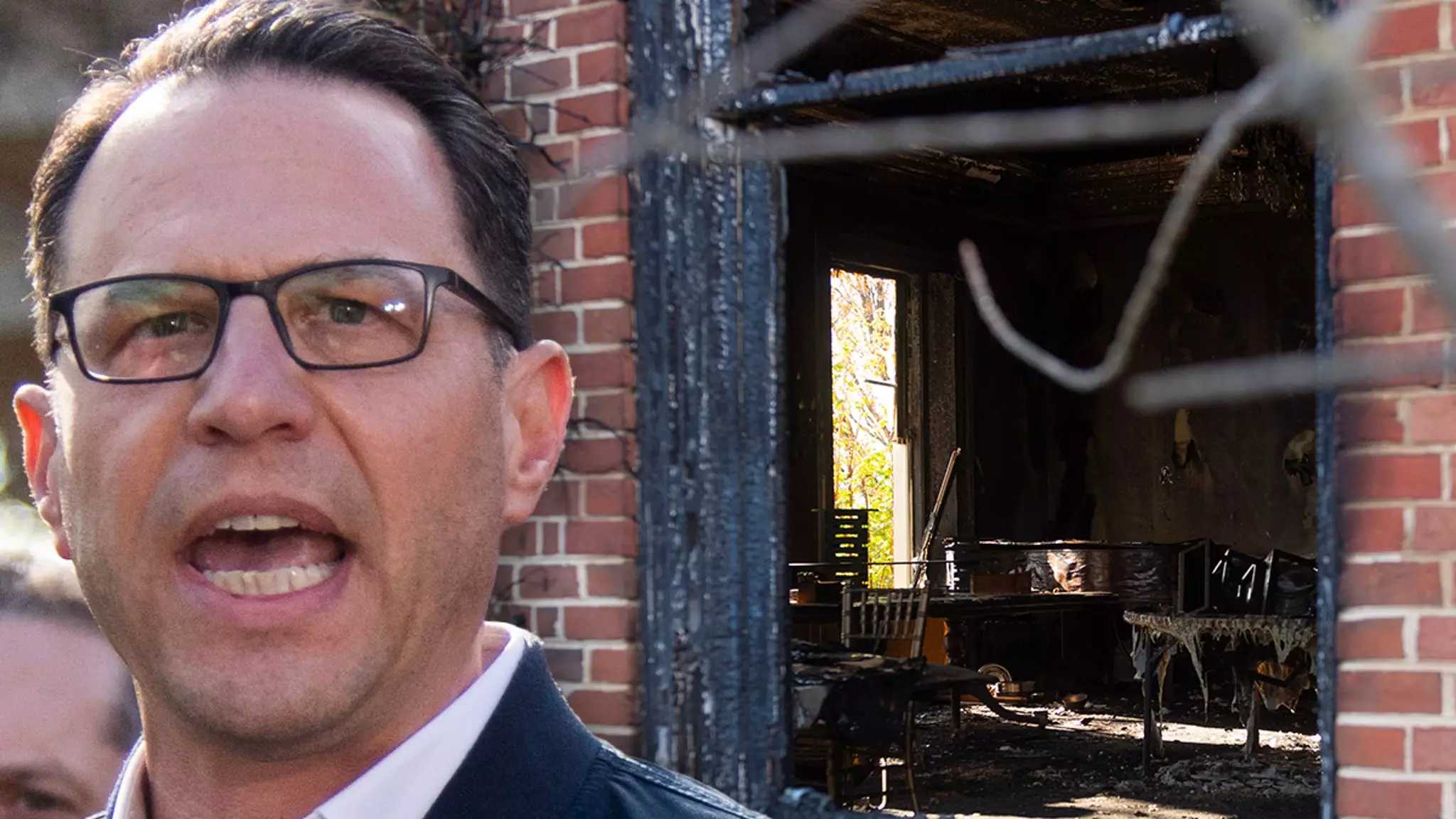In a shocking turn of events, Pennsylvania Governor Josh Shapiro and his family found themselves at the center of a terrifying act of violence. After celebrating Passover in their residence, their home was targeted by an alleged arsonist, a 38-year-old man named Cody Balmer. Reports indicate that Balmer gained access to the Governor’s Residence by jumping a fence and forcibly entering the building. The incident unfolded around 2 AM, leaving the Shapiro family, accompanied by another family, to evacuate amidst chaos and flames.
The gruesome aftermath revealed the extent of the damage—a large communal space, typically filled with warmth and laughter during such gatherings, was left in ruins. Charred debris covered the floors, and shattered windows served as haunting reminders of the violence that struck a moment meant for communal joy and reflection. This event speaks not only to the physical damage inflicted but also to the psychological scars left on those involved. The aftermath of such attacks often permeates deeper than the initial shock, rippling through communities and sowing seeds of fear and division.
The Motives Behind the Flames: A Disturbing Pattern of Hate
While the true motivation behind Balmer’s attack remains unclear, the context of the incident casts a long shadow. Governor Shapiro has expressed concerns that his identity as a Jewish leader may have influenced the attack. Notably, he recounted how his family had gathered to commemorate the exodus of the Israelites from bondage, emphasizing the profound significance of liberty intertwined with that sacred narrative. The act of violence transcends mere vandalism; it serves as a manifestation of hate that seeks to undermine the very ideals the community holds dear.
By labeling Balmer’s actions as attempted murder, terrorism, and aggravated assault, authorities highlight the seriousness of the threat posed not only to the Governor but to society at large. When individuals engage in such calculated violence, they threaten the fabric of our communal existence. In a climate where political divisions are palpable and often hostile, this incident underscores an urgent need for dialogue and understanding.
Condemnation of Political Violence: A Call to Action
In the wake of this horrifying event, Governor Shapiro stood firm, delivering a powerful message against political violence. His declaration—that it is never acceptable, regardless of the faction responsible—serves as a vital reminder of our collective responsibility to foster a culture of respect and empathy. Political violence erodes democracy and fuels animosity; it is counterproductive to the values that underpin a thriving society.
As we absorb the news of this tragic incident, it’s crucial to rally around the values that unite us as a community. We must reject hatred in all its forms, irrespective of its source. The resilience shown by Governor Shapiro and his family in the wake of this attack can serve as an inspiring model for all of us. Rather than retreating into fear, we are called to stand with one another, embracing diversity as a strength rather than a weakness.
In a time when many may feel disenfranchised or dehumanized, incidents like this serve as a potent reminder to remain vigilant against forces that aim to divide and destroy. The hope is that, together, we can rise from the ashes not only as individuals confronting adversity but as a community committed to healing and understanding.

